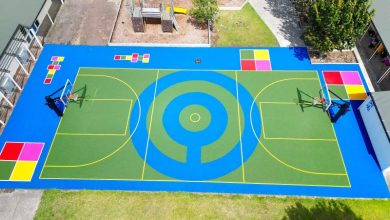Youth concerned about gambling, report shows

 A report on youth gambling using data from the Youth’12 Health and Wellbeing Survey has been published by the University of Auckland and UniServices. The report was commissioned by the Ministry of Health to explore the impacts of gambling and problematic gambling amongst youth in New Zealand and to identify risk and protective measures.
A report on youth gambling using data from the Youth’12 Health and Wellbeing Survey has been published by the University of Auckland and UniServices. The report was commissioned by the Ministry of Health to explore the impacts of gambling and problematic gambling amongst youth in New Zealand and to identify risk and protective measures.
The Youth’12 survey found that overall there were small, but statistically significant, decreases in the amount of time and money that students spent on gambling from 2007 to 2012.
Nearly one quarter of the 8500 secondary school students surveyed reported gambling in some form over the previous year, with most saying they gamble to have fun, win money or because they want a challenge.
While the most common gambling activities were ‘Bets with friends or family’, ‘Instant Kiwi (scratchies)’, and ‘Cards or coin games (e.g. poker)’, some students had participated in gambling activities that are illegal for their age group (e.g. gambling at a casino).
Some youth feel the negative effects of gambling more acutely than others. The negative impacts of gambling were felt at disproportionate levels by young people living in neighbourhoods of higher deprivation and for Māori, Pacific and Asian youth. Students of Māori, Pacific and Asian origin were more likely to report worrying about the time and money they spent on their own gambling than New Zealand European students, (Māori 18 per cent, Pacific 36 per cent, Asian 24 per cent and New Zealand European six per cent).
Similar trends were seen for youth worrying about the gambling behaviour of family and whānau, (Māori 15 per cent, Pacific 24 per cent, Asian 11 per cent, New Zealand European five per cent). Three per cent of all students said there had been gambling-related arguments in their family during the previous year.
Concern about other people’s gambling behaviour was particularly pronounced for Māori and Pacific youth living in areas of high deprivation, (22.2 percent and 27.9 per cent respectively).
University of Auckland researcher Dr Fiona Rossen says the findings that show youth living in more deprived neighbourhoods are disproportionately affected by gambling, are consistent with adult gambling research.
“The effects of gambling on communities are strongly linked to deprivation. For example, the greater density of gambling outlets in low-deprivation neighbourhoods can entice people into gambling as a way of making money and escaping poverty,” she says.
“Gambling is a socially acceptable activity in New Zealand, even amongst young people, and it is important to consider the roles of parents, gambling industries, communities and media in shaping young peoples’ perceptions of gambling,” Dr Rossen says.
Other findings show that of the students who had gambled in the previous year, 21 per cent were worried about or had tried to cut down on their own gambling activities.
Nearly 60 per cent of students who had gambled in the past year reported that they would look to parents, and half would talk with friends for support for problem gambling. Seventeen per cent said that they would not look for help at all.
Dr Rossen hopes the report will increase awareness about how parents’ gambling affects young people and the dangers of youth gambling, and also lead to public health services including treatment, education and prevention for young people and their families/whānau around issues impacting on youth gambling.
www.youthresearch.auckland.ac.nz
The Gambling Report is available online through the Ministry of Health and the Adolescent Health Research Group websites.
Gambling is defined as “having bet precious things for money on an activity”.









